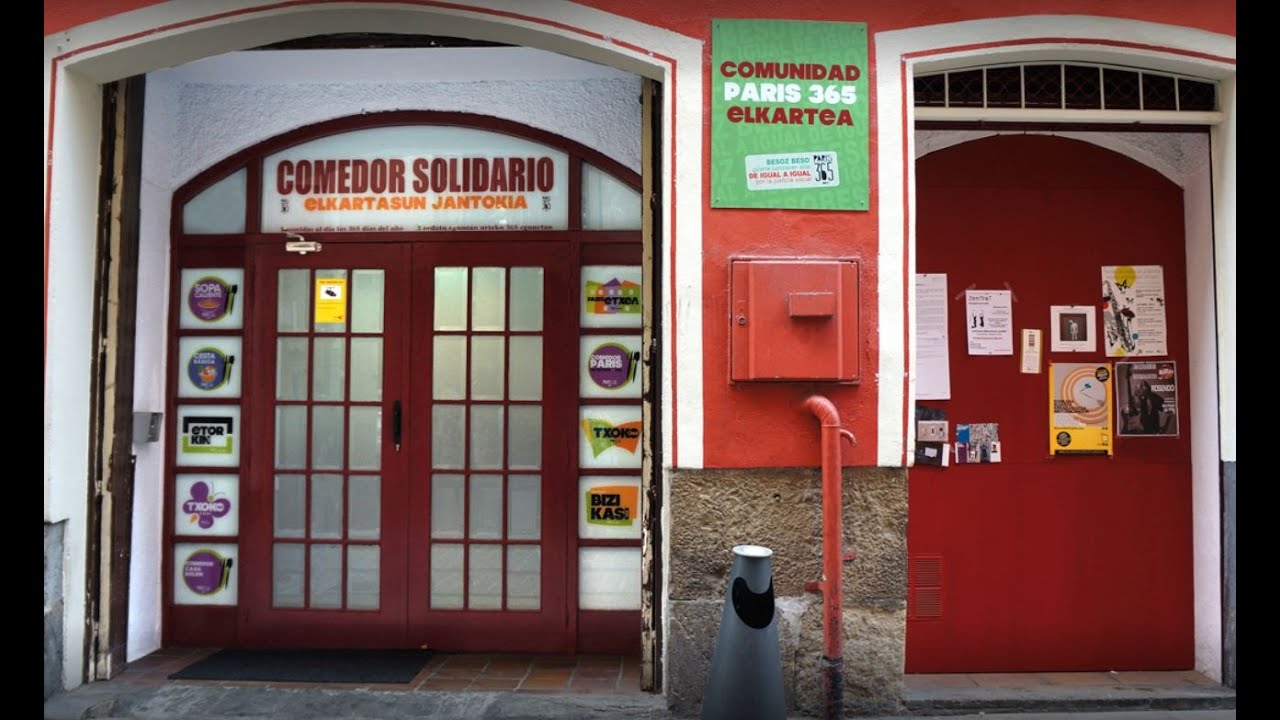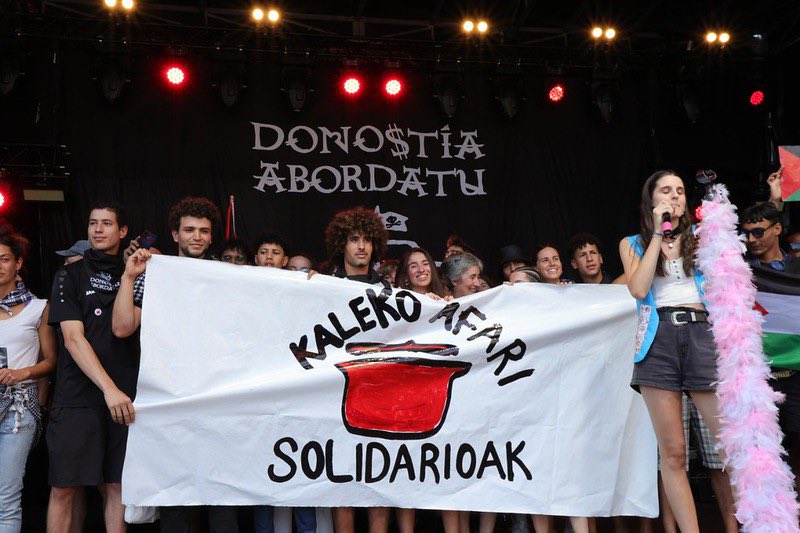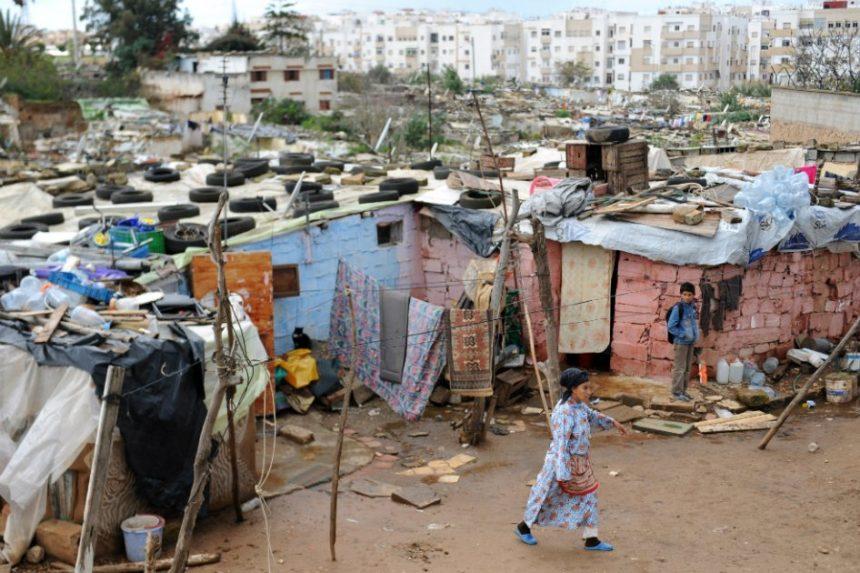Spanish law increasingly punishes small robberies without violence
- The criminal reform approved on 23 June in the Spanish Congress, in which the small theft (theft without violence or intimidation of less than 400 euros) guarantees its repression with a prison of up to 18 months in cases of “recidivism”. The supermarket lobby has for years been pushing for ferrets to be punished more harshly, and the reforms carried out along this road are hurting the most vulnerable sectors of society.

Among the crimes against patrimony and against the socio-economic order contained in the Spanish Penal Code is theft, and 234. It is governed by Articles 235 and 236. The adaptation initiative has been that of the Catalan party PDeCAT, which has been trying for some time to tighten the penalties that apply to theft. The agreement with the PSOE has allowed it to carry out the adaptation, since the amendment of the Penal Code submitted by both parties has been transferred and approved to the Spanish Congress. At the sitting of 23 June, the criminal reform was approved by 190 PSOE Members, PDeCAT, PNV, Unidas Podemos, Esquerra, Citizens, More State-Equo and Compromís. PP, Vox, Bildu and CUP abstained and only BNG voted against.
Article 234 is thus reworded, so that persons who have been sentenced for three or more robberies of less than EUR 400 may be penalised with six to eighteen months in prison, provided that the sum of such robberies exceeds EUR 400. Until now, the law did not provide for the sum of the robberies, nor for prison sentences for theft of less than EUR 400; similar penalties have been applied in the case of theft of more than EUR 400.
Theft and theft are violence and intimidation used after something: the theft committed by law without violence or intimidation and theft with violence and intimidation. Theft can therefore be the subtraction of the pocket or mobile to the neighbor in public transport, but also the exit from the supermarket without paying for food.
A tool to punish the poor in times of growing poverty
Once approved in Congress, the reform introducing the new wording of Article 234 for the procedure has been submitted to the Senate. It is expected to become effective after the summer, coinciding with the expected economic "recession" situations that have been heard so much in recent days. If not by chance.
The increase in the price of the purchase basket (8.1% between the beginning of the year and May, according to the NGO Oxfam Intermón), historical fuel price caps… In recent months we have seen inflation rise to 10.2% every June (according to the report published by the CCOO Economic Cabinet in July, the profits of companies have been the main responsible for inflation). Although this affects us all, it does not affect us at the same level. Depending on the amount of revenue, they allocate a very different and unequal share to priority needs (food, clothing, electricity, gas, fuel…). The higher the income, the lower the part of the income to be earmarked for this expenditure. Oxfam Intermón comes to ratify it as follows: “Considering the increase in prices of all products, it is observed that for families with lower purchasing power the maintenance of the same consumption pattern is 14% more expensive. For the richest houses the price of the shopping cart has also increased, but much less, 11%. That is, between January and May 2022, inflation has reduced the purchasing power of the poorest households by 30% more than that of the richest houses.”
According to the NGO report, in the poorest households (with incomes below or equal to EUR 400 per month), about 35% of the income has been destined to pay the energy bill in the first quarter of 2022, and to a greater or lesser extent, the electricity bill is becoming a burden for all low-class households. To this must be added the increase in the food and fuel basket, and if you also take into account the rental, the equation can become unsolvable – according to data from the Organization for Economic Cooperation and Development (OECD) of 2014, in the Spanish State the rent consumed more than 40% of the household income, and the price trend has been higher than then. Ofxam’s report speaks plainly: “The data we are going to present is worrying, it seems that very difficult months have come.”
It follows from this situation that people who are once again forced to survive have increased, and that if the forecasts are met and the situation worsens, the number of people who will be in this port will increase. Thus, with criminal reform, many will have to be put at risk for a possible prison sentence to meet their most basic needs. In other words, as life becomes more expensive, reform is more likely to penalise poverty.
The supermarket lobby, driver of reform
“It’s clear, they’re not going to defend [the criminal reform] by saying that this measure is aimed at those who steal food, but those who are professionally engaged in stealing food in the subway, etc… But the supermarket clerk is the one who has been pushing for years. More than a decade,” said journalist Antonio Maestre after learning that the reform was approved.
The journalist published in 2013 in La Marea the report Mercadona and El Corte Inglés, behind the new reform of the Penal Code (after the new reform of the Penal Code of Mercadona and El Corte Inglés), in which a criminal reform had just been approved in which the hurricanes had been thin. Until then it was considered that there was a shortage of burglaries, but as it became a crime with reform, the door was opened to heavier penalties. Through the report, Maestre explained that the supermarket clerk AECOC Asociación Española de Codificação Comercial (Asociación Española de Codificação Comercial de España) was pushing for the reform of the Spanish Penal Code, in order to get the theft punished more harshly.
“AECOC was founded in 1977 and its partner companies represent around 20% of the Spanish State’s Gross Domestic Product. Mercadona, El Corte Inglés, Coca Cola, Caprabo, Fnac, Carrefour and Mango are some of the 30 major companies of AECOC and, through the Loss Prevention Commission, one of the objectives they have is to form a lobby to turn their business demands into law and put pressure on the administrations”, we can read the journalist. He explains that these pressures led to the 2013 criminal reform that transformed the character of the theft, and those pressures also correspond to what has just been approved in June.
This relationship between criminal reform and several companies has been highlighted by PDeCAT Spanish Congressman Ferran Bel in statements after the reform was approved: “Special recognition must be given to the organizations that have been working for a year and promoting this change in the Penal Code, Foment del Treball and ICAB Barcelona, associations of merchants from Barcelona, Friends of the Paseo de Gracia and others.”
Women, lead author of the hurricanes
“The Penal Code that punishes poverty is a Penal Code that harms women more.” This is confirmed by the announcers of the Less Wolves programme in the session entitled Women in Prison (Women in Prison), with the following nuance to the statement: “Especially in the case of hurricanes.” It is one of the crimes most committed by women (theft accounts for 36 per cent of crimes committed by women and 10 per cent of crimes committed by men).
According to the radio programme, after the adoption of the criminal reform that caused the theft to pass from fault to crime, the crimes committed by women grew enormously. Based on data from the Spanish Statistics Institute in 2016, crimes committed by women increased by 400% between 2007 and 2016, rising by 50% of crimes committed by men. “This rise does not mean that more such acts have been committed, but that they have become a number of crimes that until then were not crimes,” said the speakers. In fact, criminal reform eliminated certain misdemeanours – minor criminal offences that were unprecedented and could not be punished by imprisonment – and made them a crime.
Along with the theft, another infraction that went from fault to crime was to ‘paint’ water, light or gas for a value of less than 400 euros. “Among other reasons, for these reasons, it has been said that the reform of the Penal Code penalized poverty, hardening penalties for offences that were not serious, violent or causing risks. And in many cases these are facts of survival.”
These changes in the Penal Code, as the speakers have pointed out, are particularly detrimental to women, as “being a woman is one of the main factors aggravating poverty around the world”. As is well known, the vast majority of inmates are often poor, and many women in jail “are often the economic support of their family. Even many of them are solely responsible for their dependent children.” In other words, it can be concluded that many have ended up in prison to carry out actions that are considered criminal for their survival. The figures speak for themselves: In 2017, 72% of women prisoners in the Spanish state were convicted of crimes against patrimony, most of them “robberies”.
Wikipedian bilatu dut hitza, eta honela ulertu dut irakurritakoa: errealitatea arrazionalizatzeko metodologia da burokrazia, errealitatea ulergarriago egingo duten kontzeptuetara murrizteko bidean. Errealitatea bera ulertzeko eta kontrolatzeko helburua du, beraz.
Munduko... [+]
Gasteizko Errotako (Koroatze) auzoan izan diren manifestazio "anonimoek" kolokan jarri dute auzokoen arteko elkarbizitza. Azalera atera dituzte ere hauetan parte hartu duten partidu politiko batzuen eta beste kide batzuen izaera faxista eta arrazista.
In this frenetic and vertiginous world in which we live, the social changes that take place little by little seem to us to be sometimes imperceptible, irrelevant or insignificant. That is not the case, however, and we have to be aware of it in order to act wisely. An example of... [+]













.jpeg)







